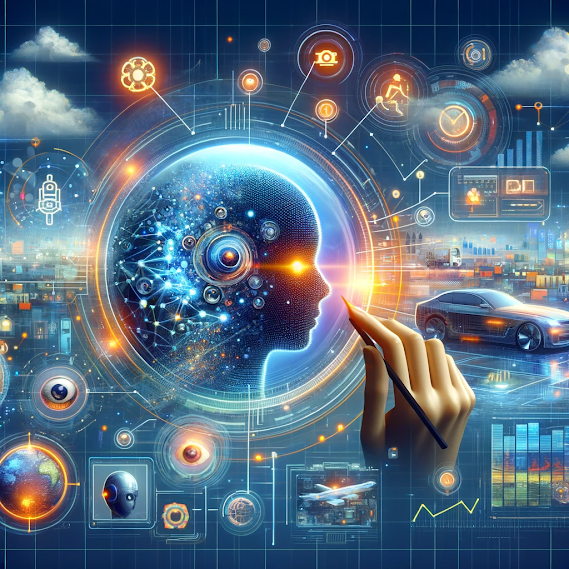🚀 Machine Intelligence in Industrial Operations: A Game-Changer in Efficiency and Performance
🚀 Machine Intelligence in Industrial Operations: A Game-Changer in Efficiency and Performance
Machine intelligence (MI) refers to the application of artificial intelligence (AI) and machine learning (ML) techniques to industrial and operational contexts. This concept encapsulates the use of algorithms and data-driven approaches to optimize processes, improve decision-making, and enhance overall operational efficiency. By analyzing vast amounts of data, MI can identify patterns, predict outcomes, and recommend actions that might not be obvious to human operators. It essentially serves as a sophisticated, analytical partner in complex operational environments.
AI in In operations and manufacturing offers numerous benefits. It can lead to significant improvements in efficiency by optimizing resource use, reducing waste, and minimizing downtime. MI applications in predictive maintenance, for example, can anticipate equipment failures before they occur, saving time and resources. In process optimization, MI can analyze variables like temperature, pressure, and flow rates to optimize product quality and yield. These capabilities not only improve the bottom line but also contribute to sustainability efforts by reducing energy consumption and emissions.
A prime example of MI's impact is seen in the case of Vistra Corp’s Luminant Martin Lake Power Plant. Here, MI was used to optimize the plant's heat rate, leading to a 1% improvement in efficiency - a seemingly small margin that translates to substantial financial savings and reduced environmental impact. This instance illustrates how machine intelligence can bring about incremental yet significant enhancements in complex industrial settings, signaling a new era of efficiency and innovation in operations and manufacturing.
Vistra's approach exemplifies the potential of MI in enhancing business outcomes, from improving equipment efficiency to talent acquisition. As companies evolve, they face strategic choices: invest early in enablers for long-term growth or seek quick gains through partnerships and targeted technology adoption.
In addition, Tesla's recent unveiling of "Optimus Gen 2", a more advanced and efficient humanoid robot, signifies a leap in machine intelligence applications. Alongside Boston Dynamics, Tesla's intensified focus on practical robotic solutions, as seen in their hiring surge for the Optimus program, highlights a burgeoning era in robotics aimed at enhancing various sectors.


.jpeg)


Comments
Post a Comment